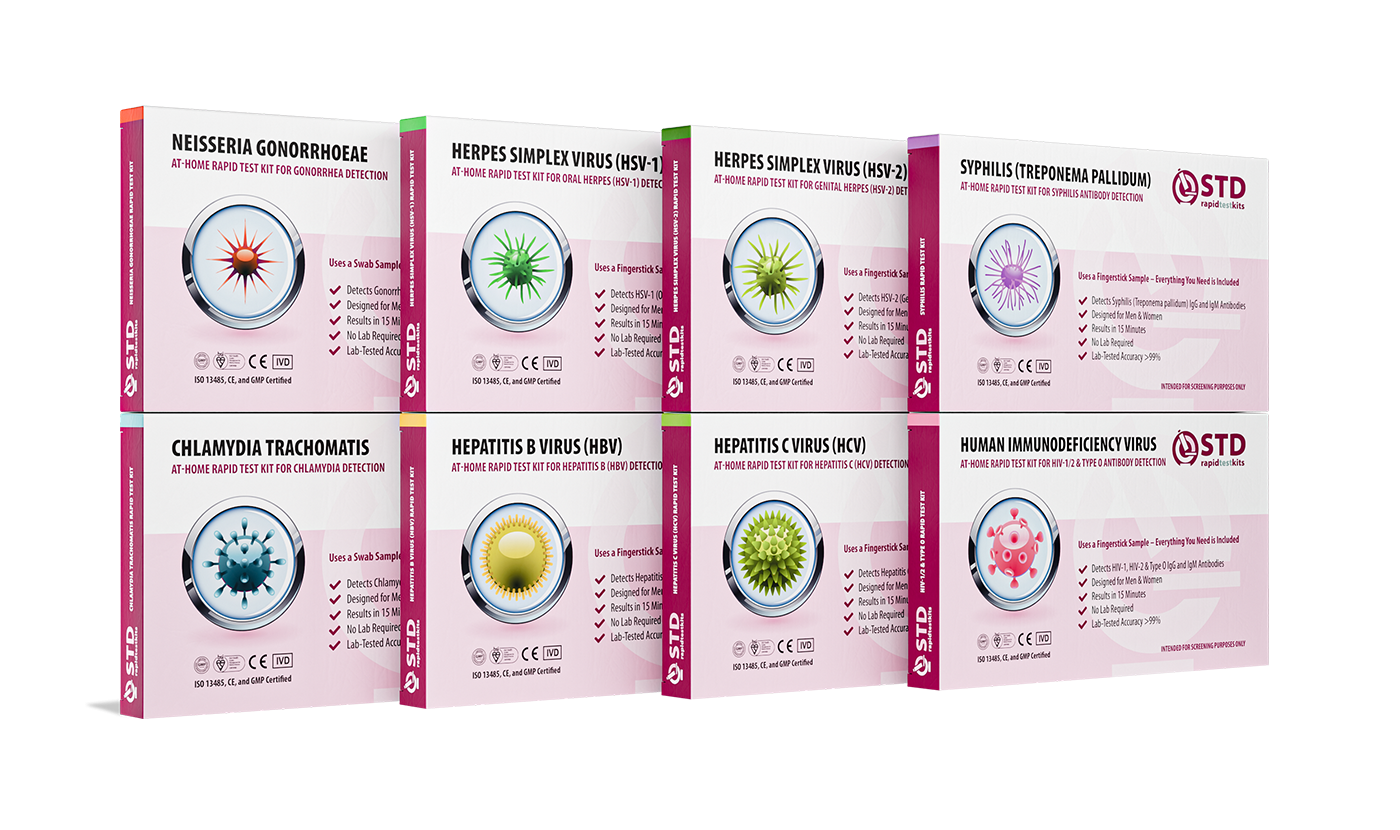Quick Answer: A lot of research shows that abstinence-only sex education doesn't work and is based on fear of STDs, not science. Comprehensive, inclusive sex education and private STD testing are better ways to protect and empower people.
This Isn’t Just Bad Teaching; It’s Policy by Panic
Let’s be clear: abstinence-only sex education isn’t about health; it’s about control. These programs became federally funded in the 1980s, as HIV panic collided with conservative family values. Billions of dollars later, many schools are still pushing a curriculum that teaches “just don’t” instead of “here’s how.”
Here’s what abstinence-only sex ed typically skips:
- Condom use: Either not taught at all, or discussed only in failure terms
- Consent: Rarely included in curriculum guidelines
- LGBTQ+ inclusion: Often explicitly excluded or pathologized
- Pleasure: Framed as a gateway to danger, not a valid part of sexuality
Instead, students are told that STDs are inevitable if you have sex, that condoms don’t work, and that your worth is tied to your virginity. It’s not science, it’s shame wrapped in a health class.
A 2017 Guttmacher Institute report found that teens in abstinence-only states were significantly more likely to misunderstand STD risks, believe myths about HIV, and delay testing out of fear or embarrassment.

People are also reading: “I Prayed It Wasn’t an STD”: How Faith Can Delay Testing“I Prayed It Wasn’t an STD”: How Faith Can Delay Testing
Case Study: “I Didn’t Even Know What to Look For”
Savannah, 22, went through an abstinence-only program in rural Georgia. When she felt burning during sex with her boyfriend at 19, she didn’t even consider it might be an STD.
“I thought it was just me being dramatic. I didn’t know chlamydia could have no symptoms at all. No one ever told me what it felt like, or what testing looked like.”
When Savannah finally went to a clinic six months later, she tested positive for chlamydia. The nurse told her the infection had spread to her uterus. She was lucky to avoid permanent fertility issues.
“I felt so stupid. But then I realized, it wasn’t me, it was my education that failed.”
Stories like Savannah’s aren’t rare. They’re the norm in communities where fear is the curriculum and STD testing is treated like a punishment.
When Fear Replaces Facts, We All Pay the Price
Let's talk about numbers. Research over the years has shown that programs that only teach abstinence don't lower STDs, delay sex, or improve outcomes. They actually do the opposite.
A 2018 meta-analysis in the Journal of Adolescent Health found that students who received comprehensive sex education were:
- 50% more likely to use condoms
- More likely to put off having sex for the first time
- Less likely to get an STD
On the other hand, abstinence-only methods had no measurable effect on STI rates or preventing pregnancy, and they often left students less knowledgeable about consent, anatomy, and their sexual rights.
Why STD Fear Sells, But Doesn’t Save
There’s a reason fear is the currency of abstinence-only sex ed. STD panic is emotional. It’s cinematic. It shuts people down.
We’ve all seen it: the herpes scare slides, the black-and-white photos of “what happens when you don’t wait.” Fear makes parents feel safe. It makes administrators feel responsible. But it doesn’t make anyone healthier.
And it creates a chilling effect that lasts way beyond high school. Adults raised on scare tactics are more likely to:
- Delay or avoid STD testing out of shame
- Mistrust their partners or their own bodies
- Feel paralyzed when something feels off
Fear teaches us that if you get an STD, you’re dirty. That’s not just wrong, it’s dangerous. Because the truth is, STDs are common, treatable, and sometimes completely symptomless. The earlier you know, the better.
Check Your STD Status in Minutes
Test at Home with Remedium7-in-1 STD Test Kit

 For Men & Women
For Men & Women Results in Minutes
Results in Minutes No Lab Needed
No Lab Needed Private & Discreet
Private & DiscreetOrder Now $129.00 $343.00
For all 7 tests
The Rise of Private, At-Home STD Testing
There’s a quiet revolution happening, and it’s happening in bathrooms, bedrooms, and dorm rooms across the country. Young people are turning to discreet, at-home STD test kits to bypass shame and reclaim their health.
And it’s working.
These tests are:
- FDA-approved and lab-certified
- Shipped in plain packaging, no awkward pharmacy lines
- Capable of detecting: Chlamydia, Gonorrhea, HIV, Syphilis, and more
According to WebMD, accuracy rates for some at-home STD tests are comparable to clinic-based methods, especially when samples are processed by certified labs.
And in one 2019 study, over 70% of participants under 25 said they preferred testing at home due to privacy and control. The shame just... melts away when no one’s watching.
This is what sex ed should support: informed choice, body autonomy, and practical access to care. But when fear rules the classroom, young people are left to teach themselves and test themselves later.
“I Wish Someone Had Just Told Me the Truth”
Ty, 27, remembers sitting through his entire high school sex ed course in Texas without once hearing the word “condom.” What he did hear was a lot about failure.
“They said STDs are what you get when you give in. That was the message. No one taught us how to protect ourselves, just that we’d probably regret it.”
When Ty came out in college and started dating other men, he had to learn everything from scratch. The first time he had a scare, an unusual discharge, he Googled in a panic and waited weeks before going to a clinic.
“The shame hit so hard. I thought, ‘I did something wrong.’ And it wasn’t even anything major, it was treatable. But no one had prepared me for what care actually looks like.”
Now, Ty keeps chlamydia home tests in his apartment. He says it’s not about paranoia, it’s about peace of mind.
“Knowing I can test when I need to, in private, without judgment? That changed everything. It’s part of how I take care of myself now.”
Sex Education Shouldn’t Be a Punishment
Here’s the thing: sex education shouldn’t scare you into silence. It should make you feel equipped, empowered, and normal. Because you are.
We need to stop pretending that avoiding the word “clitoris” or skipping over how STDs actually work is protecting kids. It’s not. It’s leaving them confused, vulnerable, and ashamed.
Effective sex education looks like this:
- Teaching anatomy in full, not just penis + pregnancy
- Normalizing consent as a lifelong, everyday practice
- Talking about pleasure without shame or moral panic
- Discussing STDs with facts, not fear
- Introducing testing as a routine, responsible act, not a punishment
And yes, it includes showing young people that discreet home testing options exist, are effective, and can help them stay safe without shame.
That’s not reckless. That’s responsible. And it’s time we demanded it everywhere.

People are also reading: What STDs Have Celebrities Really Had?
Don’t Wait and Wonder, Get Clarity Without Shame
Whether you're navigating hookups, starting a new relationship, or just want to stay on top of your health, STD testing doesn’t have to feel scary.
You don’t have to wait for symptoms. You don’t need a doctor’s lecture. You don’t need to prove anything to anyone.
Sexual Health Isn’t a Threat, It’s a Right
Let’s stop pretending that knowing your body is dangerous. That naming your genitals is dirty. That asking questions makes you promiscuous. These lies don’t protect anyone, they just keep people in the dark, afraid to ask for help until it’s too late.
Real sexual health education doesn’t scare you. It doesn’t shame you. It reminds you that:
- Your body belongs to you
- Curiosity is not a crime
- Pleasure and protection can coexist
- STDs are health issues, not moral ones
And the right to test, to know, and to feel safe in your own skin? That’s not a luxury. That’s the baseline.
If you were raised on fear, you’re not broken. If you’re scared to ask, you’re not alone. And if you're ready to unlearn the shame, we’re right here with you, no judgment, no lectures, just facts and support.
This isn’t about being reckless. It’s about being real. Because knowing your status isn’t risky. It’s revolutionary.
Check Your STD Status in Minutes
Test at Home with Remedium8-in-1 STD Test Kit

 For Men & Women
For Men & Women Results in Minutes
Results in Minutes No Lab Needed
No Lab Needed Private & Discreet
Private & DiscreetOrder Now $149.00 $392.00
For all 8 tests
FAQs
1. Is it still legal in the U.S. to teach sex education that only teaches abstinence?
Yes, and the government still pays for it. Even though studies have shown that fear-based abstinence programs don't work, many states still use them.
2. Do programs that only teach abstinence really lower the number of STDs?
No. Many studies show that they don't lower the rates of STDs and may even make people wait longer to get tested or act more dangerously because they don't have enough information.
3. What should a good sex education course cover?
A solid sex education plan should talk about anatomy, consent, birth control, pleasure, and ways to prevent STDs. It should also be inclusive and open to all sexual identities and orientations.
4. Why don't more schools talk about condoms?
In short, political and religious pressure often makes districts leave condoms out of sex education, or ignore sex education altogether.
5. Do STDs not show any signs?
Yes. A lot of STDs, like chlamydia and gonorrhea, can be completely symptomless, especially in the beginning. This is why testing is so important.
6. Do home STD test kits work?
Yes, they are very accurate for common STDs like HIV, chlamydia, and gonorrhea when bought from trusted companies and processed in certified labs.
7. Are at-home STD test kits reliable?
Yes, of course. At home STD test kits are private, reliable and easy to get, which makes them a helpful tool for your people who want to protect their sexual health.
8. What if a test I do at home comes back positive?
Most kits come with extra materials for after the fact. You can also show your results to a doctor or nurse to get confirmation and treatment.
9. Do home test kits come in packaging that isn't too obvious?
Yes. Reputable companies like STD Rapid Test Kits ship in plain boxes with no logos or medical language on them.
10. Is it possible to test for more than one STD at once?
Yes. You can get combo kits that test for HIV, syphilis, chlamydia, and gonorrhea all at once.
You Deserve More Than Silence and Shame
We can’t rewrite the sex ed we didn’t get, but we can demand better for the next generation. Because silence doesn’t protect people. Shame doesn’t prevent disease. And fear shouldn’t decide what we learn about our bodies.
If you’ve ever felt embarrassed, confused, or unsure, you’re not alone. And you’re not broken. You’re a person navigating a system that withheld the truth in the name of morality.
Let’s flip the script. Let’s teach with facts. Let’s test with privacy. Let’s reclaim sex education as a tool for freedom, not fear.
Ready to take control of your health, without judgment? Try our combo STD home test kits for discreet, fast, and accurate answers.
Sources
1- Comprehensive Sex Education: Review of Effectiveness – PubMed
2. What to Know About At-Home STD Tests – WebMD
4. Guttmacher Institute – “New Name, Same Harm”: Policy and Rebranding of Abstinence‑Only Programs
5. Journalist’s Resource – Why an Abstinence‑Only Approach Is Problematic: Evidence and Meta‑Analysis










